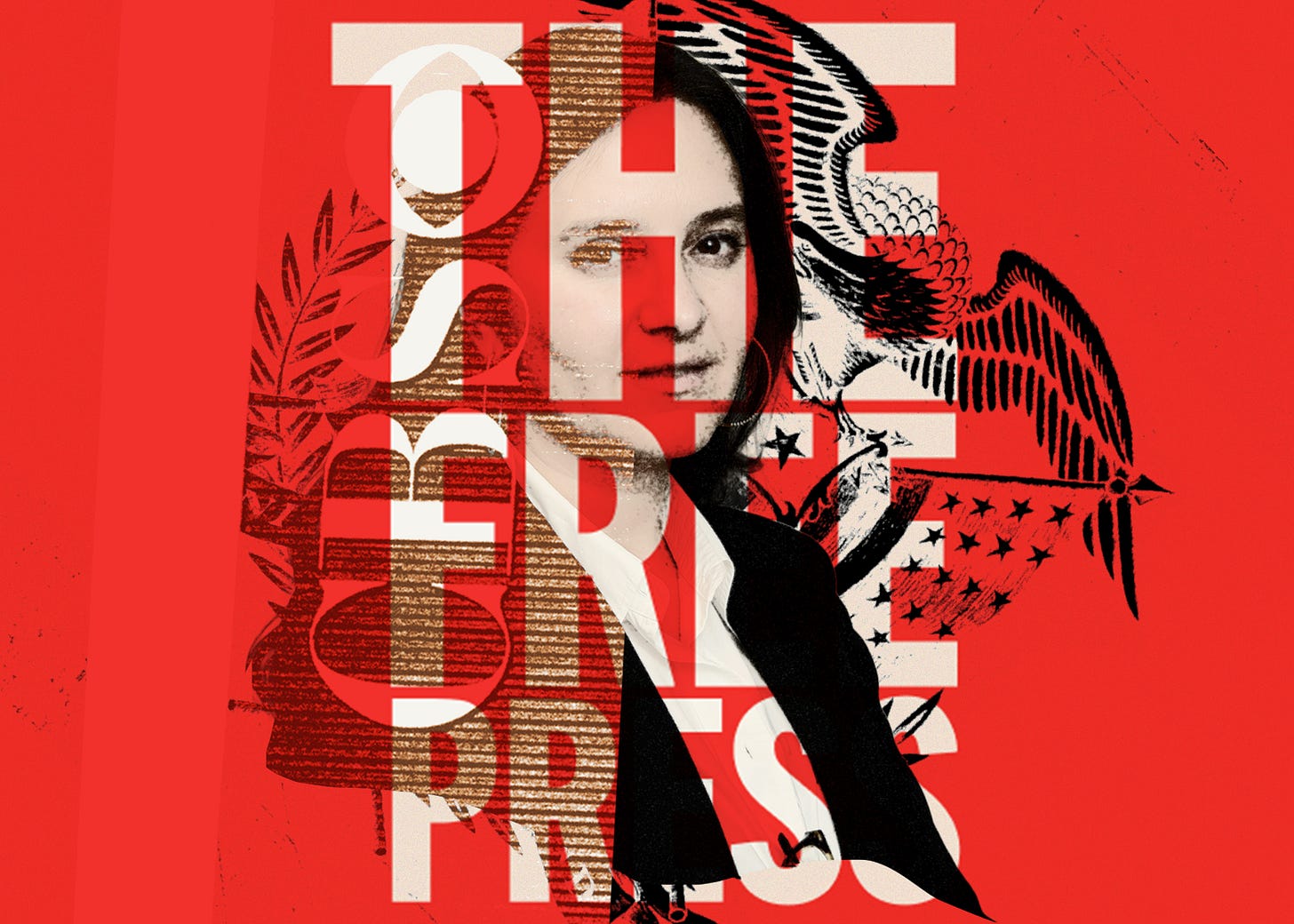MONDAY MORNING BROUGHT a long-anticipated announcement: The Free Press, the web publication started by Bari Weiss in 2021, has been acquired by Paramount, and Weiss herself has been made the editor-in-chief of Paramount’s CBS News.
Discussing the reported $150 million purchase in a statement, the chairman and CEO of Paramount, billionaire tech scion David Ellison, called the Free Press “one of the most dynamic news organizations in the country.”
Weiss, in her own message to her new CBS News colleagues, said that she wants to help the network news division focus on journalism that holds both political parties “to equal scrutiny,” and that “embraces a wide spectrum of views and voices.” At the Free Press, which she says “will remain independent” within Paramount, she wrote an editorial reiterating these themes.
But now that the deal is sealed, what will Paramount be getting for its money? Does the actual record of the Free Press show fidelity to the principles Ellison and Weiss proclaim? And as Weiss—who has no experience working in network TV, and whose video products have not particularly thrived—steps into her new role at CBS News, what can we expect based on her leadership at her own media project?
The outlook is not great. While the Free Press has published some undeniably high-quality work and platformed interesting voices, its position as a fellow traveler of the right in the culture wars has increasingly come at the expense of its stated goals: journalistic independence, open-mindedness, intrepid truth-seeking, upholding a commitment to liberal values. What’s more, Weiss’s triumph is owed, at least in part, to a president’s abuse of power to trample those values and strong-arm his critics. One would expect that someone who holds true to core journalistic principles would have spoken out against those tactics. The Free Press has largely remained silent.
From independent dissident to fellow traveler of the right
I speak as someone who, a few years ago, was unabashedly Team Bari. I wrote several sympathetic articles about Weiss, taking her side against what I thought, and still think, was unfair and over-the-top hostility generated by her status as a right-of-center pundit at the New York Times, and often manifesting itself in Twitter pile-ons based on uncharitable readings of innocuous statements.1 (I should add, by way of full disclosure, that Weiss and I briefly met a few times and interacted cordially on Twitter, and that she shepherded two of my articles as an editor at the Wall Street Journal and at the New York Times in 2017 and 2018.)
I was sympathetic when Weiss resigned from her Times job in July 2020 after the ouster of editorial page editor James Bennet—despite some reservations when a journalist from Weiss’s own center-right side, the late Sol Stern, reported that she was extremely cagey when asked for specifics of either the bullying or the censorship she said she had endured. Stern also took Weiss to task for failing to push back when MAGA activists, and Donald Trump himself, weaponized her critique of the Times as a talking point against “Fake News.” Nonetheless, he concluded by wishing Weiss well in her next foray into “journalism ‘without fear or favor,’” a position I was glad to second.
Weiss had been, to that point, a true independent. While her criticism usually punched left, she was willing to challenge critics of the illiberal left who had little to say about the sins of the right.2 Her August 2017 New York Times column about the hijacking of the Women’s March by far-left radicals acknowledged that “the nightmare of the Trump administration” was by far the bigger story (which, she argued, made it all the more essential for the opposition to avoid big missteps). And in November of that year, Weiss wrote a hard-hitting piece about the threat Trumpism posed to conservative think tanks and magazines. Discussing Sol Stern’s departure from one such publication, City Journal, Weiss quoted from his resignation letter assailing “the magazine’s intellectual abdication on the most urgent crisis facing the nation today: the election of an unfit, dangerous man to the presidency, plus the myriad ways in which the forces of Trumpism . . . are tearing the country apart.”
Eight years later, these critiques read like a prescient description of Weiss’s own media venture at a time when the same man in the White House is even more unfit and dangerous, the “forces of Trumpism” are even more extreme, and “the nightmare of the Trump administration” this time around makes the first version seem almost normal.


No comments:
Post a Comment